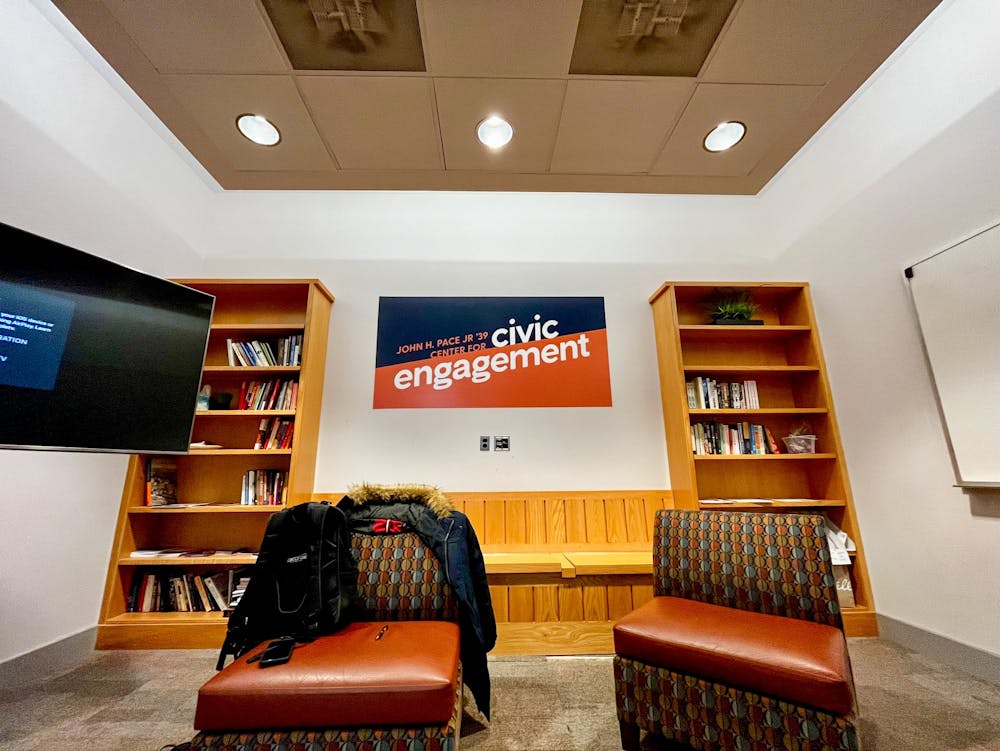The phrase “In the nation’s service and the service of humanity” inevitably comes up in any conversation about Princeton and public service and is often used as a means to critique graduates’ career paths. A Princetonian who goes on to work in finance or consulting, for example, is seen as betraying the University’s core values and not acting in “the service of humanity.”
Yet oftentimes, I think we students use this phrase as a crutch — not only is it used to draw easy lines between “good” and “bad” careers (in reality, there are many ways to have a positive impact), but we also use it to obscure the meaning of public service itself. We say that we must embody the motto, but rarely actually define what it means to work in public service or to be in the business of helping people. Because the reality is, the world of public service is much larger and more complex than “not consulting.” We focus more on what service doesn’t look like than what it does.
Working in a non-governmental organization or another typically service-oriented organization does not automatically mean that a Princetonian is making a positive impact. We need to resist the comfort that this job title might confer and instead challenge ourselves by digging more deeply into how to have an impact and create change.
A common critique of service, however well-intentioned, is that those conducting it don’t listen to their communities or fail to invest in sustainable solutions. We often see this in the somewhat infamous “mission trips” that people (particularly white people) take. They go into communities to build a school or volunteer in educational services — yet research has shown that volunteers often disregard the true needs of the community and that their brief volunteering can even worsen conditions. Despite being labeled as a service trip, participants aren’t making a bigger difference than any consultant might.
This same ineffectiveness and lack of listening can plague the non-governmental organization (NGO) that a student joins in order to change the world and harm the policy positions we hope to attain. Scholars have noted that failures of policy and government often result from problems with implementation and that these failures of implementation often occurred when people want to help communities, but on their own terms: from a distance or without truly consulting those communities. Indeed, I’ve had friends become disillusioned after interning for NGOs, frustrated by ineffective policies and bureaucracy. NGOs can be great tools, but they can also be inefficient and even damage the communities they’re attempting to help. It’s up to us to understand that distinction.
The truth is, we have the tools to think about engaging in effective service. We just need to use them. Countless Princeton classes examine how to approach public service and create meaningful policies or change. In fact, the Pace Center for Civic Engagement offers courses that explore this through their Program for Community-Engaged Scholarship (ProCES).
Students need to use the lessons from their Princeton experience, whether it’s their classes, internships, or conversations with peers, to more critically examine how they approach service. As we move out of the Princeton bubble, civic-minded students must be intentional with the organizations that we devote our time to, and be critical of how organizations approach public service and policy. Until we do so, we cannot prematurely assume that we are improving the world more so than those in consulting and finance.
It’s not enough to say that we’re going into public service — we don’t join organizations that automatically make us “in the nation’s service and the service of humanity,” and we don’t embody the phrase simply by choosing not to pursue consulting or finance careers. The phrase (or at least the way we use it) disguises the fact that it’s often difficult to truly be “in the service of humanity.” We should, of course, be encouraging people to go into public service, but we can’t leave it at that. As students, we need to endeavor to explore more deeply what public service actually means, and how we can be truly effective with the tools our Princeton education gives us.

Community Opinion editor Lucia Wetherill is a junior from Newtown, PA. She is studying in the School of Public and International Affairs (SPIA), with certificates in Global Health Policy and Latin American Studies. She can be reached at lw2158@princeton.edu.









